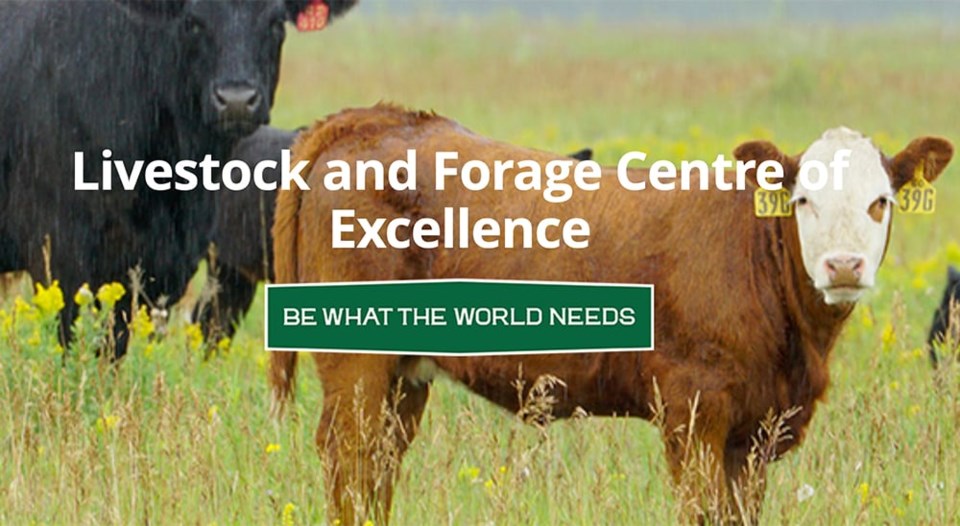WESTERN PRODUCER — Livestock research got a sustainable stamp of approval through the provincial and federal governments with $6.6 million to the Livestock and Forage Centre of Excellence.
“When you have this type of facility and if we can supply some funding to it to make it work, then it just allows the industry to grow and to do some really good research,” said Saskatchewan Minister of Agriculture David Marit who announced the funding at the LFCE Field Day on June 20.
“We want to continue that and we want our producers to do highly environmentally sustainable livestock production and also have a return on their investment.”
The LFCE is a research unit of the University of Saskatchewan located southeast of Saskatoon near Clavet. It includes commercial-scale cow-calf and feedlot facilities, fields and laboratories to allow research on topics related to the cattle industry. Examples include forage development, feed optimization, genetics, reproduction and environmental sustainability.
LFCE director Scott Wright said that as an applied research centre launched in collaboration with the industry, the LFCE relies on its direct links with cattle producers. The annual field day is part of this, this year drawing about 250 people, including producers, researchers, industry and government representatives.
“I believe it’s fundamental to the LFCE to help us choose the directions we go and the priorities we put into play,” Wright said, explaining that the event helps researchers and producers, particularly the younger set, build the skills to connect.
“For LFCE, it helps set our direction. It also creates awareness, which helps support when we’re back to next opportunities.”
The newest funding represents about a 20 percent increase for the LFCE budget, or about $1 million.
“We’re absolutely thrilled with the announcement; thrilled with the support,” Wright said. “So that bump is a well-needed opportunity to add resources, to add capacity to do the work here and really support researchers as we go along.”
Beyond practical knowledge for producers, Marit said LFCE has a role to play in defining and defending beef production as a sustainable activity and to counter negative claims in social and traditional media.
“What this funding does, and we’ve always said, all our decisions should be based on science,” he said. “We can provide this funding and we can do the research and prove the importance of the livestock sector to the ecosystem as a whole… it’s all important to get the right story out there and tell the story that the beef industry is not only important to the economy, but it’s important to the ecosystem as well.”
The funding comes through the Sustainable Canadian Agricultural Partnership, a five-year, $3.5 billion agreement launched in April among the federal, provincial and territorial governments to “strengthen the competitiveness, innovation and resiliency” of the ag industry. The fund includes $1 billion in federal money with the balance delivered as cost-shared programs.



